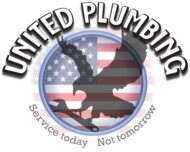Even if you're not a plumber, most people understand that water enters and leaves their home through a series of plumbing pipes. But unless you're in the industry, you might not know the difference between a water line vs a sewer line.
All plumbing pipes are not created equal. Over the years, plumbing pipes have been made out of a variety of materials. Some have worked well. Others have fallen by the wayside.
The best type of material for your specific plumbing needs can vary based on how it's being used and the climate and region of the country.
As plumbing technology continues to improve, there are many kinds of plumbing pipes out there. Each with their own strengths and weaknesses. Choosing the right material for your plumbing can go a long way in reducing the need for future plumbing pipe repair in Springfield Missouri.
Copper Plumbing Pipes
Most copper piping is rigid, while some is flexible to work within tighter spaces. The rigid structure of copper plumbing pipes means it can be durable and strong. This helps it withstand corrosion and leaking.
But this durability comes at a higher cost, which has risen in recent years. And copper plumbing pipes are more susceptible to freezing, which can be a big issue here in the Midwest with our bitter cold winters.
Copper plumbing pipes that were installed before 1980 could contain solder that is lead-based, which may be a health hazard if not replaced.
PEX Plumbing Pipes
Cross-link polyethylene plumbing pipes, more commonly referred to as PEX pipe is very flexible and can be snaked around corners. Its flexibility also makes it able to withstand hot and cold water running through it without warping.
However, the flexibility also makes it susceptible to being chewed on by rodents, and it can’t withstand outdoor UV rays, which is why this type of piping works best for indoor plumbing.
PVC Plumbing Pipes
Polyvinyl chloride pipes aka PVC plumbing pipes are inexpensive and often used for water supply lines, drainage, and irrigation. They are light and don’t need to be soldered together. They also don’t rust or corrode. But they can warp over time if the water running through them is too hot, typically above 140 degrees.
CPVC Plumbing Pipes
Chlorinated polyvinyl chloride pipes or CPVC plumbing pipes, are similar to PVC pipes, but with even more chloride added to their makeup. This increases their resilience to high temperature water flowing through them. They have many of the same advantages of PVC pipes, but they are significantly more expensive.
However they aren’t made for outdoor use. They split pretty easily when frozen, and can also break down when exposed to sunlight for prolonged periods.
When it comes to your own plumbing project, how will you know what type of pipe is best for you to avoid the need for future plumbing pipe repair? Reach out to an expert plumbing company in Springfield, Missouri you can trust to always make the best recommendation.
Whether it's new construction, repairs or remodeling, United Plumbing will always make sure you have the right type of plumbing pipe for all of your plumbing needs.

